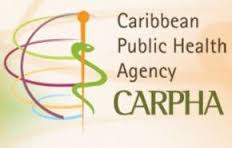PORT-OF-SPAIN, Trinidad — Executive director of the Caribbean Public Health Agency (CARPHA), Dr James Hospedales, has confirmed that Influenza A (H5N1), commonly referred to as “avian influenza” or “bird flu” has not been detected in the Caribbean region. Although human infection with this virus is rare, sporadic cases of human infection have been reported outside of the Caribbean. Reports from the World Health Organization (WHO) show Indonesia, Vietnam and Egypt as having reported the highest number of human H5N1 cases to date.
However, seasonal influenza (or flu), which affects many thousands of people in the Caribbean each year, is an infectious respiratory disease that is associated with the circulation of one or more of three influenza viruses A, B or less commonly type C. Influenza viruses A and B cause seasonal epidemics yearly during autumn and winter in temperate regions. In some tropical countries, influenza viruses circulate throughout the year with one or two peaks during rainy seasons.
Worldwide, annual epidemics can result in about three to five million cases of severe illness, and about 250,000 to 500,000 deaths. Most deaths associated with influenza occur among people age 65 or older. In the Caribbean, the 2009 H1N1 influenza virus is the most commonly identified seasonal flu virus circulating in the Region and therefore this is not an unexpected finding.
Seasonal influenza can cause mild to severe illness, and at times can lead to death. It is characterized by symptoms such as a sudden onset of high fever, cough (usually dry), headache, muscle and joint pain, severe malaise (feeling unwell), sore throat and runny nose. Most healthy adults may be able to infect others beginning one day before symptoms develop and up to 5 to 7 days after becoming sick.
Most people recover from fever and other symptoms within a week without requiring medical attention. In some cases, illness can be severe resulting in hospitalizations and deaths mainly among people at greater risk for serious complications if they become infected. This includes older people, young children, pregnant women and people with certain chronic health conditions (such as asthma, diabetes, or heart disease), and persons living in facilities like nursing homes.
The influenza virus spreads mainly by droplets made when people with influenza cough, sneeze or talk. These droplets can land in the mouths or noses of people who are nearby or possibly be inhaled into the lungs. Less often, a person might also get the flu by touching a surface or object that has the influenza virus on it and then touching their own mouth or nose.
To avoid this, CARPHA advises members of the public to:
• Avoid contact with individuals who have influenza or flu-like symptoms;
• Stay at home if sick;
• Wash hands often with soap and water particularly before and after eating, after visiting a public place, after using the washroom, after coughing and sneezing and after touching surfaces that may have been contaminated;
• Observe respiratory etiquette by coughing and sneezing into their arm, and not their hands; if a tissue is used it should be disposed of as soon as possible and then followed by hand washing. If soap and water are not available, an alcohol-based hand rub may be used;
• Linens, eating utensils, and dishes belonging to those who are sick should not be shared without washing thoroughly first. Eating utensils can be washed either in a dishwasher or by hand with water and soap and do not need to be cleaned separately;
• Frequently touched surfaces should be cleaned and disinfected at home, work and school, especially if someone is ill.
The most effective way to prevent the disease or severe outcomes from the illness is vaccination. Safe and effective influenza vaccines have been available and used for more than 60 years. Among healthy adults, influenza vaccine can prevent 70% to 90% of influenza-specific illness. Among the elderly, the vaccine reduces severe illnesses and complications by up to 60% and deaths by 80%.
Vaccination is especially important for people at higher risk of serious influenza complications, and for people who live with or care for high risk individuals.
Further information on respiratory viruses including influenza may be found at the PAHO website














